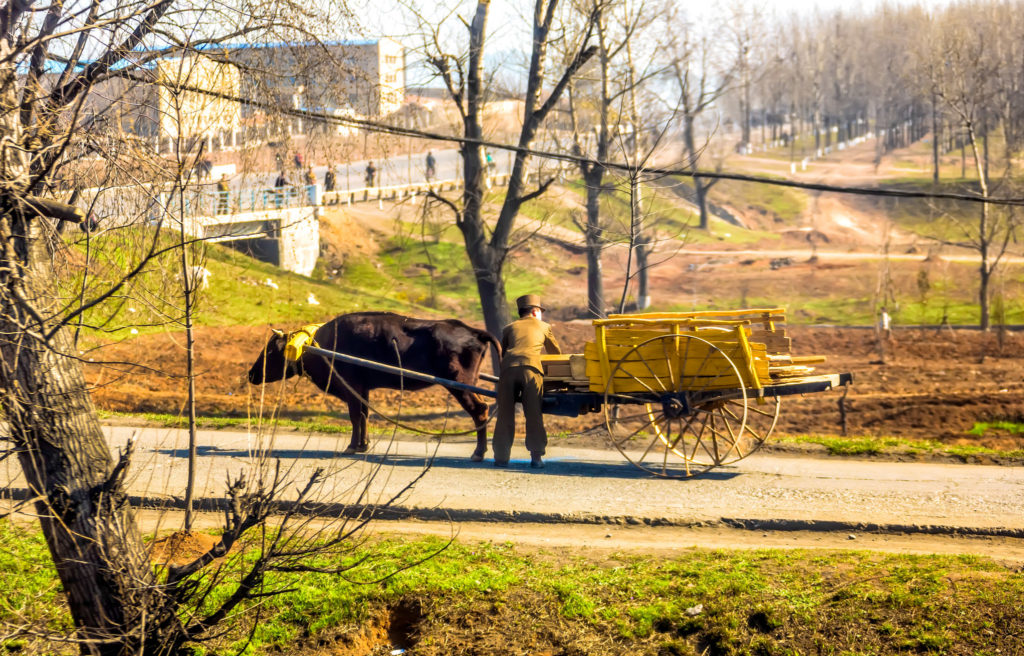The Peninsula
Excerpts of an Interview on the Humanitarian Situation in North Korea

Troy Stangarone of the Korea Economic Institute of America (KEI) recently interviewed Jérome Sauvage, the Deputy Director of the United Nations Development Program’s Representation Office in Washington, DC and previously the UN Coordinator in the DPRK, on the humanitarian situation in North Korea for KEI’s Korean Kontext podcast series. In the interview, Deputy Director Sauvage discusses life in North Korea and the humanitarian challenges the population faces from a lack of food, potable water, electricity, and a collapsed healthcare system. The following is an excerpt of that discussion.
Stangarone: When we think about the well being of a society, it is more than simply nutrition and the agricultural sector. One area that is obviously important is the public healthcare system. What do we know about the current state of the healthcare system in North Korea and how it’s able to address the healthcare needs of the population?
Sauvage: I can tell you that the healthcare system is unable to provide any kind of healthcare services to the population. It has collapsed. Today, basically, you are talking about no equipment. And I mean for example, certainly no heat and no water in the hospitals, and no supplies. No anesthesia. Most deliveries are done in a natural way, so the health system is basically broken.
Stangarone: You had mentioned issues with water. Water is essentially the basis of life. What is the current state of water supplies and sanitation? Obviously, diseases can be carried through unsanitary water. How does that impact the population?
Sauvage: One of their problems has been that they used to have a pretty good system, good pipes, up until the 90s. So, basically, now you have these pipes that are broken and you will have the sanitation system and the water supply system basically mixing and getting people very sick…Its comparable to some the most difficult cases that we have in other countries in the developing world.
Stangarone: One of the interesting things I saw once was that companies are now doing much more corporate social responsibility work. And, one of the things that I thought was interesting is the point where business interests and community interests overlap. Coke when they go around the world, because it costs far more than it would be worth produce Coke in the United States and to essentially take water and ship it overseas, when they build the plants [overseas] they often take and do sanitation issues with the water. Given the level of sanctions and everything, it might be difficult for Coke to set up in North Korea, even if North Korea wanted them to come in, but should we be trying to encourage or look for, because North Korea is looking for Western investment, trying to match up companies that might have a corporate social welfare interest as well in North Korea with their own economic interests?
Sauvage: Yeah, it’s interesting that you mentioned Coke, because the UNDP works with Coke. Not in North Korea, but in quite a few place to work on water sanitation issues. This is one of our best partnerships and so I really like when you are mentioning this. Yes, if there was a space for corporate social responsibility for firms to come in and assist. Obviously, South Korean firms have done a little bit in the past, I think, that would be wonderful. It’s just that for the moment really is hardly any foreign investment in the country. But if South Korean firms could come and do work on that it would be very good.
The full interview with Deputy Director Jérome Sauvage of the United Nations Development Program’s Representation Office in Washington, DC is available on the Korean Kontext website. The views expressed in the interview are the interviewer and interviewee’s alone. The text represented here should not be considered an official transcript of the interview.
Photo from Baron Reznik’s photostream on flickr Creative Commons.
